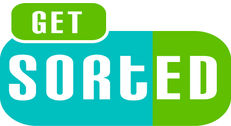SORTED Guide to Sustainability in Further Education – Part 1 - Sustainability in FE - What is Sustainability - Sustainable Development Goals
What's in this Section?
Sustainability is an ideal state where human activity does not degrade the environment, but maintains natural systems and resources for future generations.
Sustainable development is the process that moves us closer to sustainability.
Since the publication of the Stern Review by the Treasury (2006), which outlined the economic case for acting on climate change, the business case for sustainable development cannot have been clearer:
‘No-one can predict the consequences of climate change with complete certainty; but we now know enough to understand the risks. Mitigation - taking strong action to reduce emissions - must be viewed as an investment, a cost incurred now and in the coming few decades to avoid the risks of very severe consequences in the future. If these investments are made wisely, the costs will be manageable, and there will be a wide range of opportunities for growth and development along the way’.
For FE institutions as businesses, it makes sense to make the operations of buildings and estate more efficient, and to invest in carbon reduction. With the expectation that carbon emissions will be heavily taxed and capped and that energy prices will continue to rise in the future, it is important to start to take action sooner rather than later.
For FE institutions as educators, it makes sense to introduce sustainable development into the curriculum to provide learners with the knowledge, skills and values that are needed to mitigate the effects of climate change. Students in FE need to be aware of and understand issues around sustainability, which are already important in the workplace, but will increasingly be so in the future. Students with the skills and competences gained through education in sustainability will have increased employment prospects and greater potential for career progression. Additionally, colleges have an important role to play in supporting local businesses and the wider community in their journey towards a more sustainable way of living.
Understanding the “business case” for sustainability is vital to ensuring that programmes are sustainable in themselves. This will not only help to ensure projects are well supported from the senior team, but also make them more resilient if budgets are cut. Be prepared to express and demonstrate the benefits of initiatives with indicators such as cost savings, legal compliance, staff development, student involvement or positive marketing achieved. Being able to demonstrate achievements will also ensure it is possible to celebrate successes. Applying for awards is a great way to gain recognition and garner further support from colleagues, and in particular from senior leadership teams!
What makes sustainability particularly relevant for the Learning and Skills sector?
- FE colleges and other training providers are part of a wider community that is having to respond to new environmental, social and economic challenges.
- The Learning and Skills sector has a duty to prepare its students for these challenges and for new ways of living and working. The curricula, management practices and ethos of the organisation are equally important in performing this duty successfully.
- The business case for sustainability in the Learning and Skills sector is established and becoming stronger both for the organisation itself: as environmental legislation increases, there are more checks and measures needed to be put in place to ensure FE institutions comply; and this applies equally to the requirement for knowledge and skills for learners to take into the workplace where these environmental legislative requirements will also apply.
- Using sustainability as a framework can provide senior managers with a vision and a long term strategy for their organisation.
- Organisations that create economic value, healthy ecosystems and strong communities are more resilient to economic, environmental and social stresses.
- Sustainability skills are important for students’ employability!
The new Sustainable Development Goals were agreed in September 2015 by the UN’s 193 Member States. The aim is to achieve 17 Sustainable Development Goals by 2030. “The seventeen Sustainable Development Goals are our shared vision of humanity and a social contract between the world’s leaders and the people” said UN Secretary-General Ban Ki-moon. “They are a to-do list for people and planet, and a blueprint for success.”
Education plays a big part in achieving these goals, and the FE sector is in a pivotal role to contribute, having contact and communications with so many learners.
The Sustainable Development Goals would be a great resource to focus a cross-organisational learning day on.
Click on the Sustainable Development Goals image to see what they all are.







 Except where otherwise stated, content on this site is
licensed under a Creative Commons Attribution 3.0 License.
Except where otherwise stated, content on this site is
licensed under a Creative Commons Attribution 3.0 License.
